Canton’s English Language Learners Find Support and Community with Local Nonprofit
The Plymouth Canton Community Literacy Council offers immigrants free tutoring, conversation groups and more.
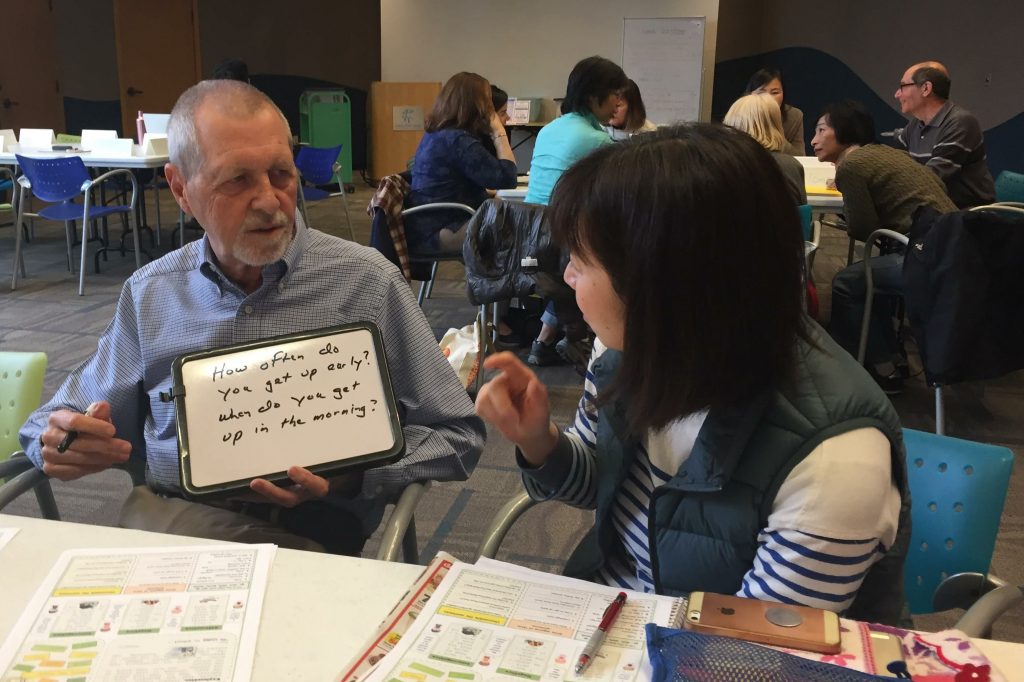
A group of people from Albania, Japan and Taiwan are reading grocery ads from a newspaper with the help of a tutor.
“Buy one, get one of equal or lesser value 50 percent off. Fruit-pa-loo-za,” reads one of them aloud.
This is the beginner’s table at an English language learners meet up. Immigrants living in the Canton area come here to practice their English and learn how to navigate life in America. This particular session takes place at the Canton Public Library every Friday.
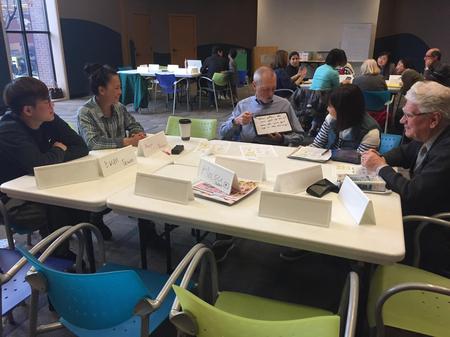
Andrea Hug is the Executive Director of the non-profit hosting the event — the Plymouth Canton Community Literacy Council. She says it’s important for immigrants in the area to have free English language support.
“Because it’s Michigan and the automotive industry is in this particular area, a lot of businesses transfer their employees here from overseas,” explains Hug.
She says 20 percent of Canton’s population speak English as a second language.
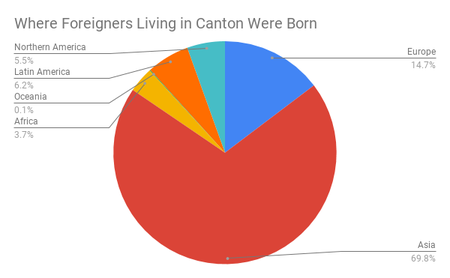
“That’s huge. One in every five people that you meet is from a different country,” says Hug. “So, if we want our community to be better, we want to welcome those people because they are part of our community.”
In addition to conversation meet ups, the Plymouth Canton Community Literacy Council also runs book clubs and provides free tutors who are available for one-on-one sessions and in English as a Second Language classes for adults who are taught by Plymouth Canton Community Schools.
“Right now we have students from over 43 different countries who speak 67 different languages,” says Hug. A lot of those people come from the Middle East, Japan, China, Korea, India and Brazil.
Isaura Alamen just moved to Canton from Mexico. She and her husband are both engineers. He was transferred here for work. Alamen is hoping she might also find a job while they’re living here for the next year. In the meantime, she wants to work on her language skills.
“I want to improve my English and I want to improve my listening skills and have more confidence,” says Alamen.
Alamen says when she has to speak English, “I don’t feel good, but I think that I need to try more.”
Chinese immigrant Jessica Wu is also here because of her husband’s job. Mitsubishi transferred him to the Detroit area from Japan. Wu says she sometimes has a hard time understanding Americans but she says it’s easier for her to understand the tutors here.
“The tutors, they speak slowly and their pronunciation is very good,” she says.
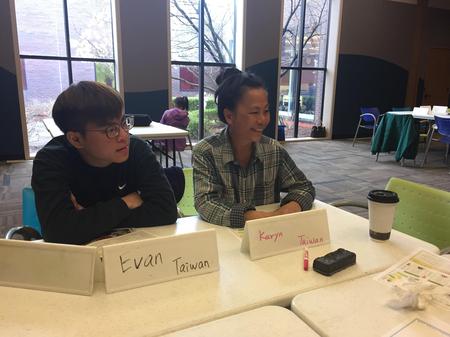
When Wu first started coming to the ESL sessions about six months ago, she sat at the table for beginners. Now she sits at the intermediate table where the focus is more on having conversations. Sometimes group members take turns sharing stories about different customs in their home countries. Other times it’s more of an open dialogue.
Today Wu is talking with tutor Stanley Goldberg about her 8-year-old daughter.
“How does she like her school?” asks Goldberg.
“Yes she likes. I think she likes her school. And she can speak English better than me,” Wu tells him.
Goldberg says he’s been volunteering as a tutor for roughly a decade.
“One thing we emphasize with our group members is, even though they’re learning American ways and learning English, their native country, their heritage, their customs are very important and nobody should expect that they’re not going to continue those. Those are still part of their heart,” says Goldberg.
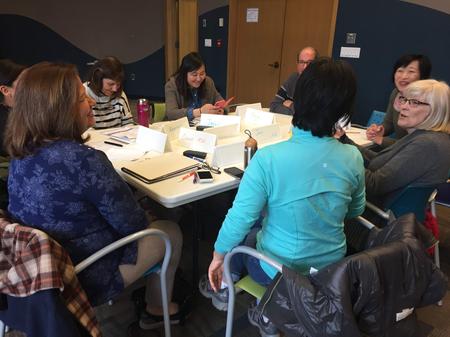
He says the students teach him just as much as he teaches them.
“I think the more we get to know each other and just realize that basically we’re all the same, but we have our own heritage and culture, is great,” says Goldberg.
Japanese participant Tomoko Ikeda has been living in Canton for about two years. She moved to America for her husband’s job managing an auto parts supplier. Ikeda says she comes here on Fridays to practice her English, but also to learn about American culture and the traditions of her fellow students.
“It’s very interesting for me to learn another culture. And to learn another culture means, I think, respect to other people. Respect other people is most important in the world right now,” reflects Ikeda.
The Plymouth Canton Community Literacy Council bills itself as a place to come to learn English. But when you talk to the students and tutors, they will tell you they’re learning about a lot more than language. They’re learning about how to appreciate other people, no matter where they come from.
The non-profit has been around for more than 30 years. The group is currently seeking additional tutors.
Why did we choose Canton? Canton was selected as a featured area for Crossing the Lines due to its dramatic economic and developmental growth, as well as its rapidly increasing diversity.
